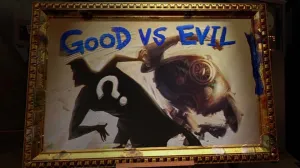What if instead of aliens hailing from other planets far from our own, they’re actually the architects of the very universe we live in? Though that might cause a bit of an existential crisis to some, it’s a new theory recently published by former Harvard professor Avi Loeb. Loeb, the chair of the Ivy League school’s astronomy department from 2011 to 2020, recently published his thinkpiece in Scientific American, suggesting there is a possibility aliens have been able to construct their own living universe.
Videos by ComicBook.com
“A less explored possibility is that our universe was created in the laboratory of an advanced technological civilization,” Loeb writes. “Since our universe has a flat geometry with a zero net energy, an advanced civilization could have developed a technology that created a baby universe out of nothing through quantum tunneling.”
Phew, need to take a breather yet?
Essentially Loeb’s idea is that the theory combines the “religious notion” of having a creator with the “secular notion” of quantum gravity and the Big Bang. To do so, Loeb says a civilization would need a predictive theory combining quantum mechanics and gravity.
“But a more advanced civilization might have accomplished this feat and mastered the technology of creating baby universes,” the astromer adds. “If that happened, then not only could it account for the origin of our universe but it would also suggest that a universe like our own—which in this picture hosts an advanced technological civilization that gives birth to a new flat universe—is like a biological system that maintains the longevity of its genetic material through multiple generations.”
The scientist then goes on to explain that humans are graded “class C” on the cosmic scale, or “class D” if our natural habitat is thoroughly destroyed through climate change. “Class A” civilizations can “recreate the cosmic conditions that gave rise to its existence,” or in other words, be able to make a universe within their universe. Loeb suggests there’s a possibility that somewhere among the stars, a “class A” civilization could exist.
“The possibility that our civilization is not a particularly smart one should not take us by surprise,” the astronomer concludes. “When I tell students at Harvard University that half of them are below the median of their class, they get upset. The stubborn reality might well be that we are statistically at the center of the bell-shaped probability distribution of our class of intelligent life-forms in the cosmos, even when taking into account our celebrated discovery of the Higgs boson by the Large Hadron Collider.”








